Great-grandaughter of Maple Leafs legend upholds hockey legacy
When Laura Stacey was growing up, rarely a family dinner went by when there wasn't a story shared about her great-grandfather and Maple Leafs legend King Clancy.
"One of the bigger stories that everybody talks about is how he was traded from Ottawa to Toronto thanks to a horse," she says. "That was how they won enough money in order to get him to come to Toronto. That's something we always joke about. Thank goodness the horse won because that's what allowed us to be Leafs."
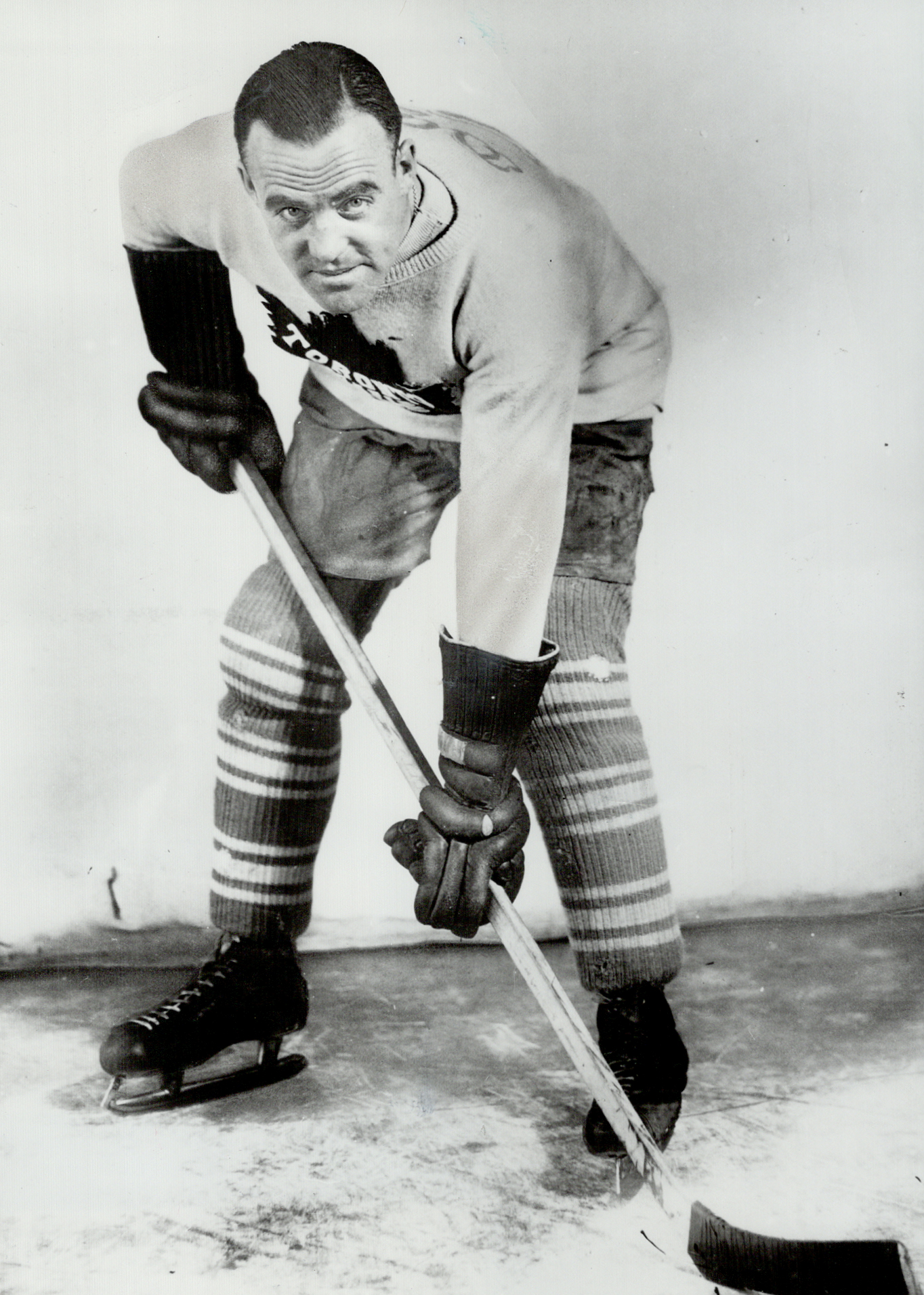
Clancy won three Stanley Cups over his 16-season NHL playing career - two with Ottawa and one with Toronto. He won another three as part of the Maple Leafs coaching staff. Clancy is considered one of the best puck-moving defensemen of all time, retiring with 283 career points - a record among blue-liners at that time. He was inducted into the Hockey Hall of Fame in 1958 and his No. 7 hangs in the rafters at Scotiabank Arena as one of the Leafs' honored numbers.
Following his retirement, Clancy became an NHL referee for 11 years before spending three seasons behind the Leafs bench. He served in various capacities in the Leafs' front office, earning another four Stanley Cups as the assistant general manager and eventually becoming the team's goodwill ambassador until his death in 1986. In his honor, the King Clancy Memorial Trophy is awarded annually by the NHL to the player who best exemplifies leadership qualities and has made significant contributions to their community.
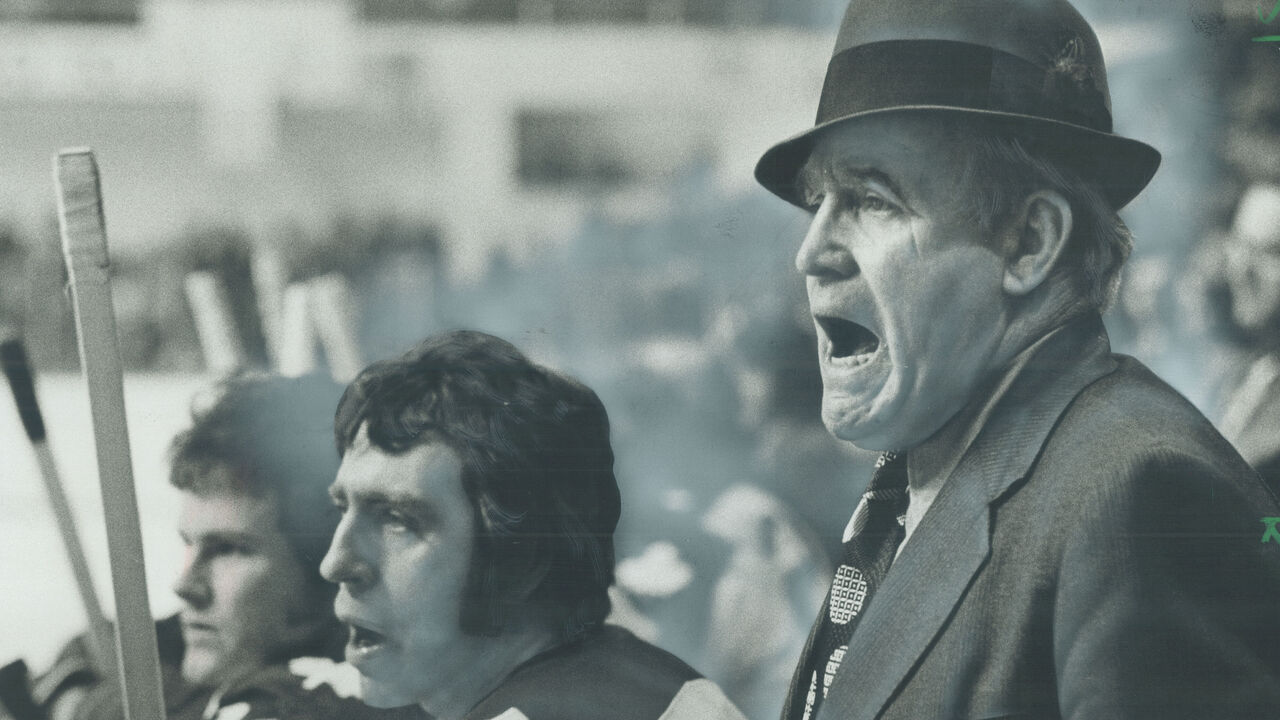
The love of the game ran in the family. From the time Stacey was 7 years old and saw the Canadian women take home gold at the 2002 Winter Games in Salt Lake City, hockey had the same hold on her that it did on her great-grandfather.
"It just took up a lot of my heart and a lot of my passion," she says.
Even though there were limited professional options for women to play hockey, Stacey set her sights on achieving what she considered the height of the sport's success: Olympic gold. She made her Olympic debut at the 2018 Games in Pyeongchang, where she took home silver before following that up four years later in Beijing with four goals and two assists on her way to a gold medal.
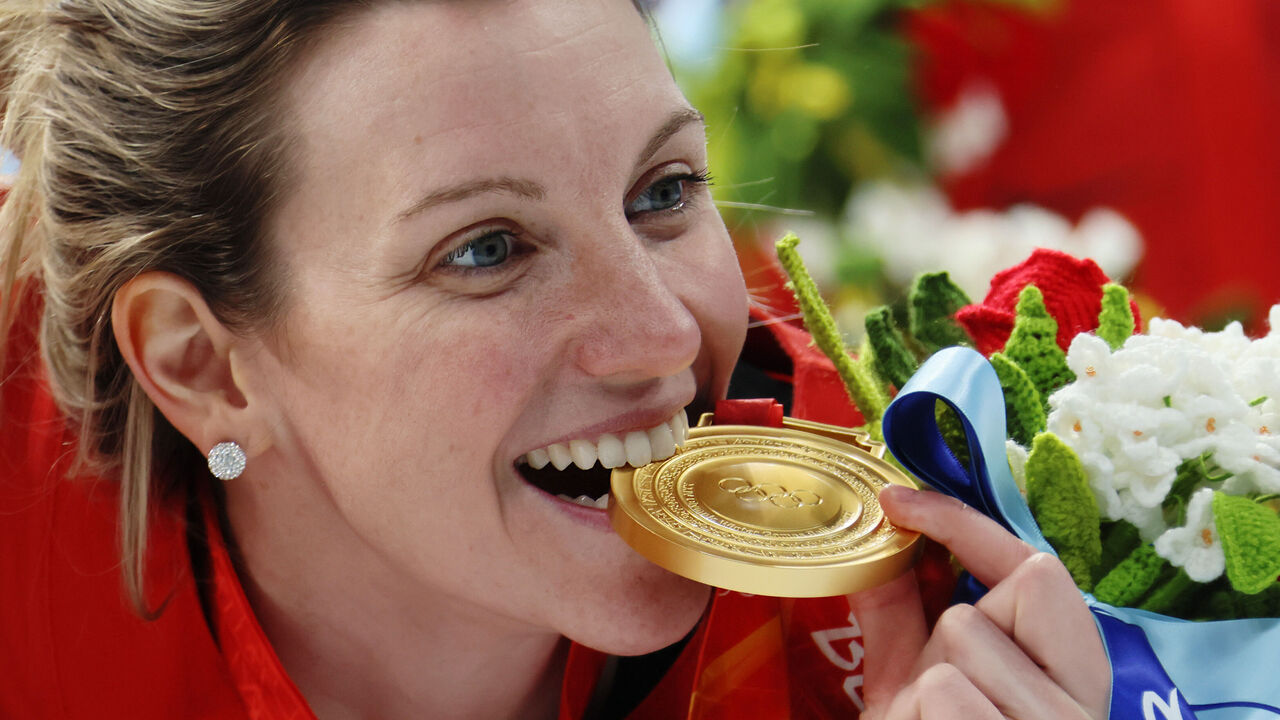
In 2023 she signed with the PWHL's Montreal team as one of the inaugural players. theScore recently caught up with Stacey to reflect on her hockey journey and family legacy in the sport.
This interview has been edited for length and clarity.
theScore: You recently found your great-grandfather's hockey card. How did that happen?
Stacey: eBay reached out to me because they had gotten into certified hockey cards and they messaged me saying that they had some of my great-grandfather. I was pretty excited about it. I thought it was awesome to see. I wear his number and he's a big part of our family. I had never actually seen his hockey card before. So to get that sent in the mail, and I have it at my house now, it's pretty cool to see. It's pretty rare. I never really expected that to happen. Just being able to have that little piece of history and his legacy is pretty amazing to me.
There must have been a lot of his memorabilia around when you were growing up.
All of the females in the family have a little gold puck necklace that he gave his daughters and his wife when they won the Stanley Cup. It's a little piece of jewelry to remember that moment and it's been passed down in our family. I actually now have a gold puck necklace as well.
Growing up, what was the family mythology around your great-grandfather?
Oh, everybody talks about him. I think our whole family's really big Leafs fans, in big part due to him. Every time we go to the arena and see his banner hanging it just brings back all those stories. I never got to meet him. But a lot of stories were shared about him and his legacy, his career as a hockey player, and also as a person. He had an amazing hockey career, but the way he did it, his giving back to charity, and his leadership throughout the Leafs organization, I think really hit home with me.
He obviously didn't make a crazy amount of money at that time in the NHL, but every Christmas he would go around and give a little bit of his salary to all the janitors and every person who was a piece of Maple Leaf Gardens. What stuck out to me is that he did want to give back so much.
Did you think you were going to be playing professional hockey like him one day?
I think for sure, there was that thought of like, 'How come I can't do what he got to do?' Or, 'How come I couldn't have that as my career?' But to be honest, I was so excited to chase my dream of playing for the national team that I was going to do whatever I could to get there.
So I think that I was never disappointed because I was always so excited about the opportunity to potentially play for my country.
When I was a kid, I only saw women's hockey at the Olympics on TV, in 2002. That was the first spark where I went, "Whoa, I want to be on that team, I want to play for Canada, I want to represent my country. I want to be an Olympian." But I never saw anything else (as it relates to women's hockey). I think that was really my only dream, to be one of 23 who made the Canadian Olympic team.
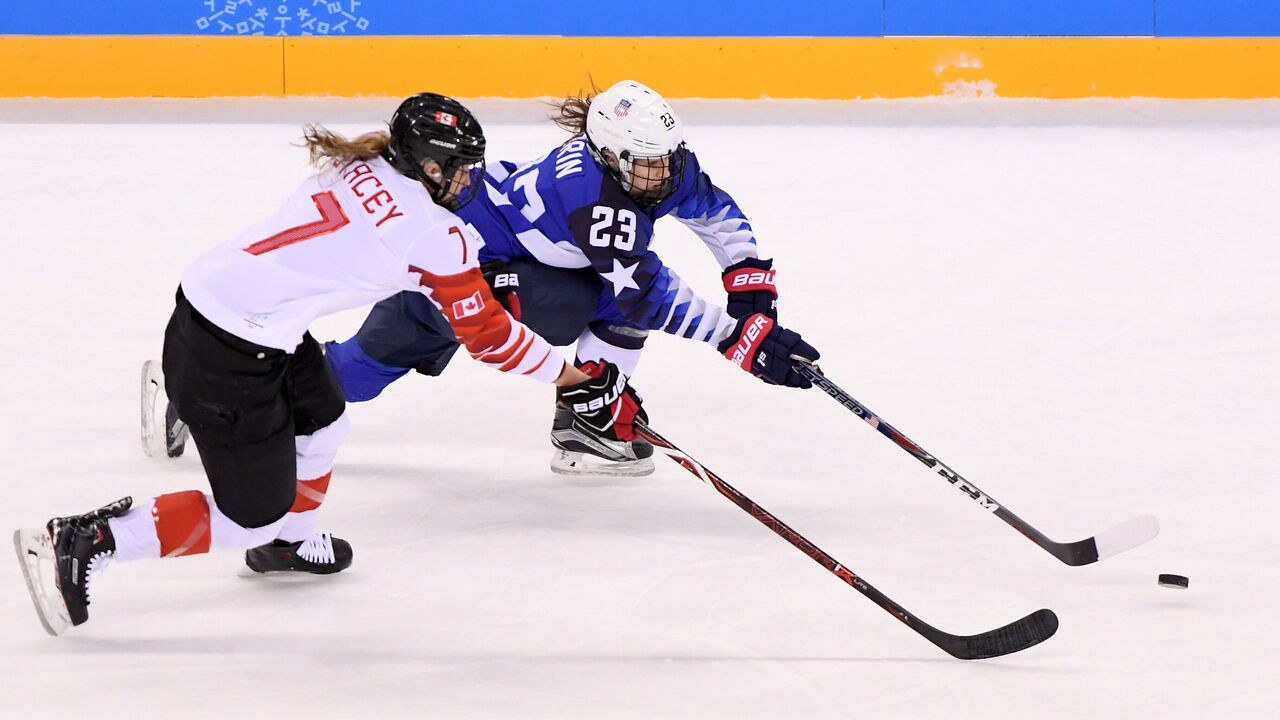
I don't think I really ever had my eyes set on playing professionally. I love the Toronto Maple Leafs. I always said, 'Oh, I wish I could play for them.' But I kind of knew it wasn't really a reality. I think a lot of girls will still dream of playing at the Olympics. I think that's still obviously the pinnacle of our sport. But I think (the PWHL) just allows so many more kids and young girls to dream because now it's not just 23 Canadians, it could be up to 150 or 200, or whatever the case may be when those kids grow up. So I think (the PWHL) just allows so many more kids and young girls to dream because there's way more spots available.
Now, it's not just, 'Hey, we go to college, and we either make the Olympic team or we don't.' It's now, 'I have a chance to play pro, and maybe still chase that other dream of representing my country.'
Throughout college when I hadn't quite made that senior team yet, it was, 'OK, what's next? Do I just get a real job? Give up the dream if I haven't made it yet? Or do I keep pushing and going after it?' Luckily, there was that CWHL to fall back on still to at least push me a couple more years. But now I can only imagine how much it's going to help people when they graduate from college. Now it's like, 'Hey, I still want to make that senior team. Now I have the chance to get even better playing professionally in this league as well.'
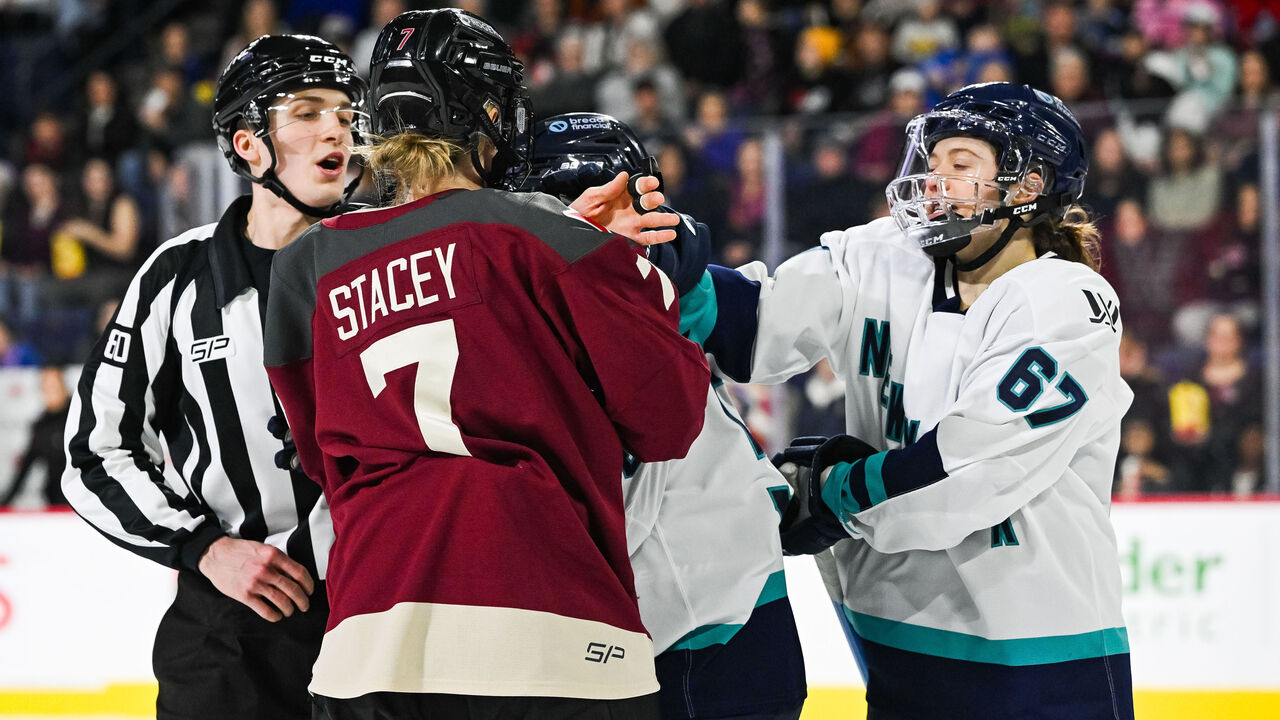
Your great-grandfather was in the early days of men's professional hockey. You're in the early days of women's professional hockey. Do you ever draw that parallel?
He was a part of the Original Six and played hockey when it wasn't really a thing. The salaries weren't huge, and it was just for the love of the game. That's exactly what we're doing with the PWHL. Obviously, it's getting bigger and better and it's growing. And I can't wait to see what it is when I'm no longer competing.
Jolene Latimer is a features writer at theScore.